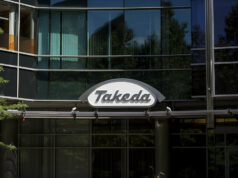
Genetic testing is becoming more prevalent and accessible yet, in economic terms, supply outstrips demand.
The applications of genetic testing can now be applied to a spectrum of clinical applications including:
- Evaluating the risk of disease;
- Monitoring or early detection of cancer;
- Understanding the genetic basis of a cancerous tumor to help guide the most effective treatment;
- Track the effectiveness of cancer treatment, informing treatment to be adjusted to optimize effect.
These broad applications have positioned the worldwide genetic testing market to potentially reach $22 billion by 2024, according to a report by Global Market Insights. The market was valued at $10.6 billion in 2017 and is expected to exceed an 11.6 percent compound annual growth rate from 2018 to 2024. The cancer diagnosis segment dominated the genetic testing market with a revenue of $5.5 billion in 2017, according to the report.
Helping to continue the growth of genetic testing for cancer, the Centers for Medicare and Medicaid (CMS) announced in 2018 plans to widen coverage for next-generation sequencing of metastatic, Stage 3 or 4 and other cancers. It was reported that Foundation Medicine and ThermoFisher Scientific and others are companies which could benefit from the CMS decision.
Rising awareness of the prevalence of leading cancers, plus increased awareness, and early detection are also stimulating the market growth of genetic testing. And, of course, the cost of genetic testing using DNA sequencing has plummeted.
Genetic testing becoming more prevalent could be a contributor to a decline in cancer deaths. The National Cancer Institute (NCI) data shows that the overall cancer death rate fell 26 percent from 1991 to 2015. And, NCI notes, “Although rates of smoking, a major cause of cancer, have declined, the U.S. population is aging, and cancer rates increase with age.”
And yet, while there is reason to be encouraged by this data, just 15 percent of advanced-stage cancer patients undergo advanced DNA testing of their cancer. Patients are often profiled after limited standard of care therapies, such as chemotherapy, radiation and/or surgery, have failed to stem the spread of cancer. Multi-gene advanced DNA testing can guide patient treatment to a wider variety of advanced options which may be more effective, e.g. immunotherapies, targeted therapies, clinical trials. Importantly, the number of these latter options has increased in recent years and looks set to continue.
It has been reported that patients may have unequal access to testing and targeted therapies. A paper published in March 2018 in BMC Cancer, Underutilization and disparities in access to EGFR testing among Medicare patients with lung cancer from 2010 – 2013, looked at data on tumor testing for Medicare and Medicaid beneficiaries diagnosed with lung cancer. They “observed racial, income, and regional disparities in testing” for lung cancer.
Another example is a study published in October 2018 in JCO Precision Oncology — ALK Testing Trends and Patterns Among Community Practices in the United States:
Patients who were older, male, had a history of smoking, lived in non-Western US regions, and who had recurrent disease or squamous histology were less likely to be tested for ALK. Patients with Medicaid and Medicare insurance were less (40 percent) likely to be tested than patients with commercial insurance.
In economic terms, our increasing supply of genetic testing for cancer is outstripping demand due to a lack of awareness, access, and affordability. This underutilization has a cost to individual patients and society.
Comprehensive cancer genomic profiling is critical for all advanced cancer patients and society. It can help improve diagnosis accuracy, guide cancer therapies (including access to clinical trials and avoiding unnecessary toxic chemotherapy) and, most importantly, improve cancer outcomes and survival. A virtuous benefit is the more cancer genetic information we generate, the greater the benefits to society as it is used for research and for developing more effective care paths for future patients.
To make headway, advanced DNA testing is now being offered as an employee benefit by at least one company as part of a program that provides comprehensive cancer support services to employers at the time of a cancer diagnosis. In addition, major employers such as Visa, Levi Strauss, Salesforce, SAP and others are partnering with diagnostic companies to bring genetics and preventive health to their populations.
While surveys show that two-thirds of oncologist use cancer genomic profiling routinely, 41 percent of cancer patients do not get the basic genetic tests, such as a single gene or limited panel testing as recommended by the National Comprehensive Cancer Network consensus guidelines. This is, in part, because of cost and availability, as noted in PubMed.gov, Genomic Profiling of Advanced Non-Small Cell Lung Cancer in Community Settings: Gaps and Opportunities.
This can be part of a comprehensive effort to achieve full deployment of genetic testing for cancer patients. But we still have a way to go, and so far, health insurance companies are not picking up the bill. To put the supply-demand equation of genomic testing in balance – we need to demand more.
Photo: Getty Images








